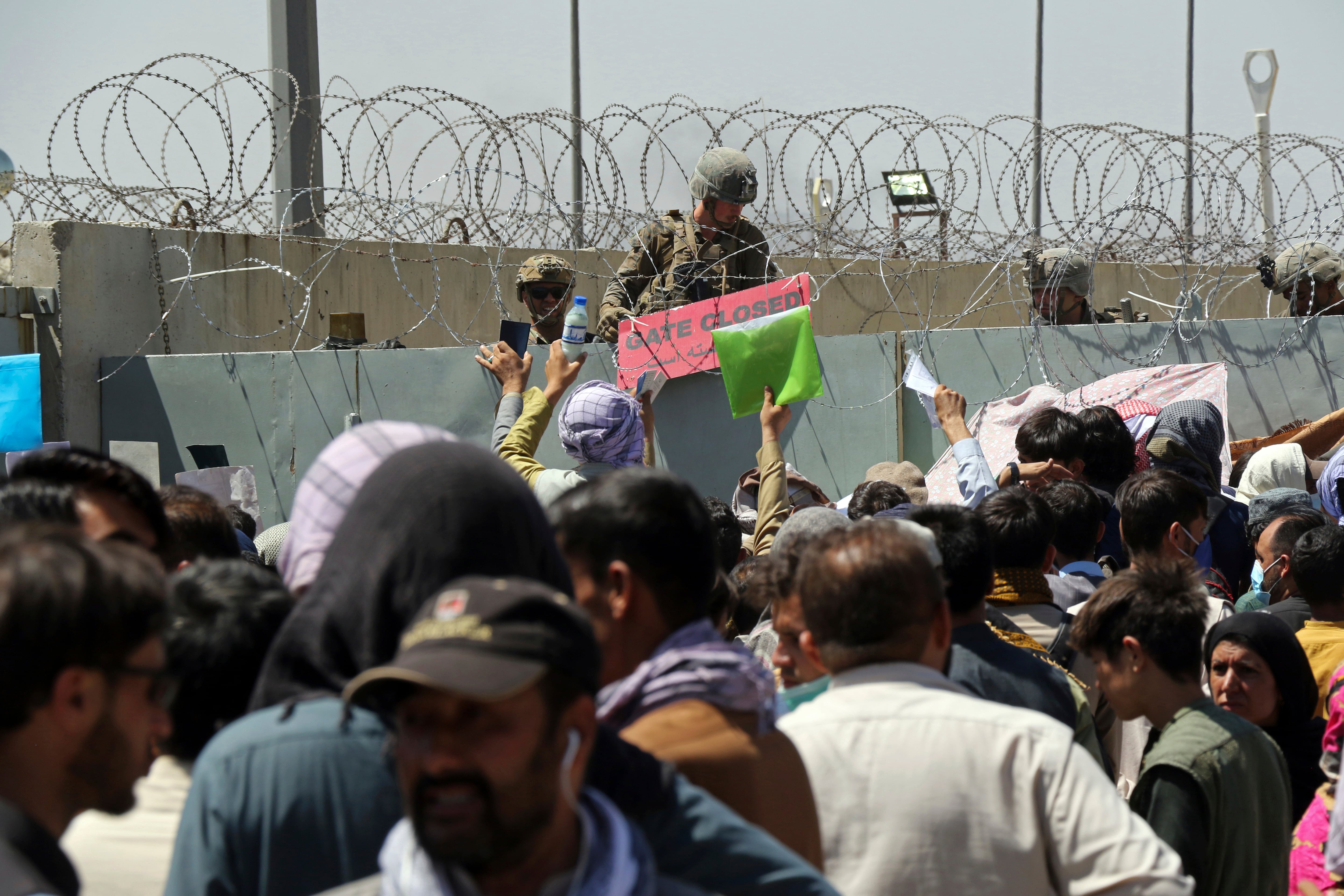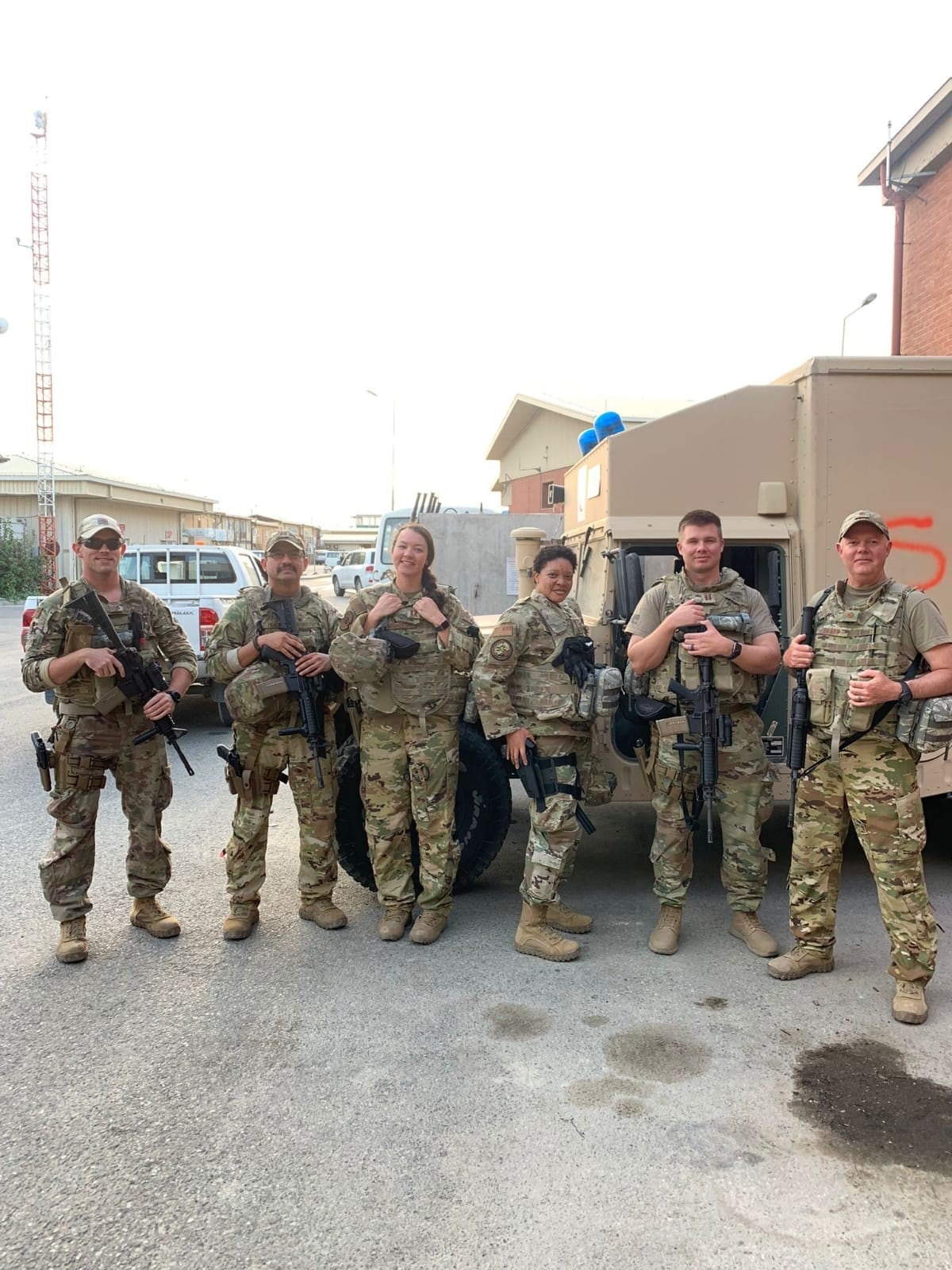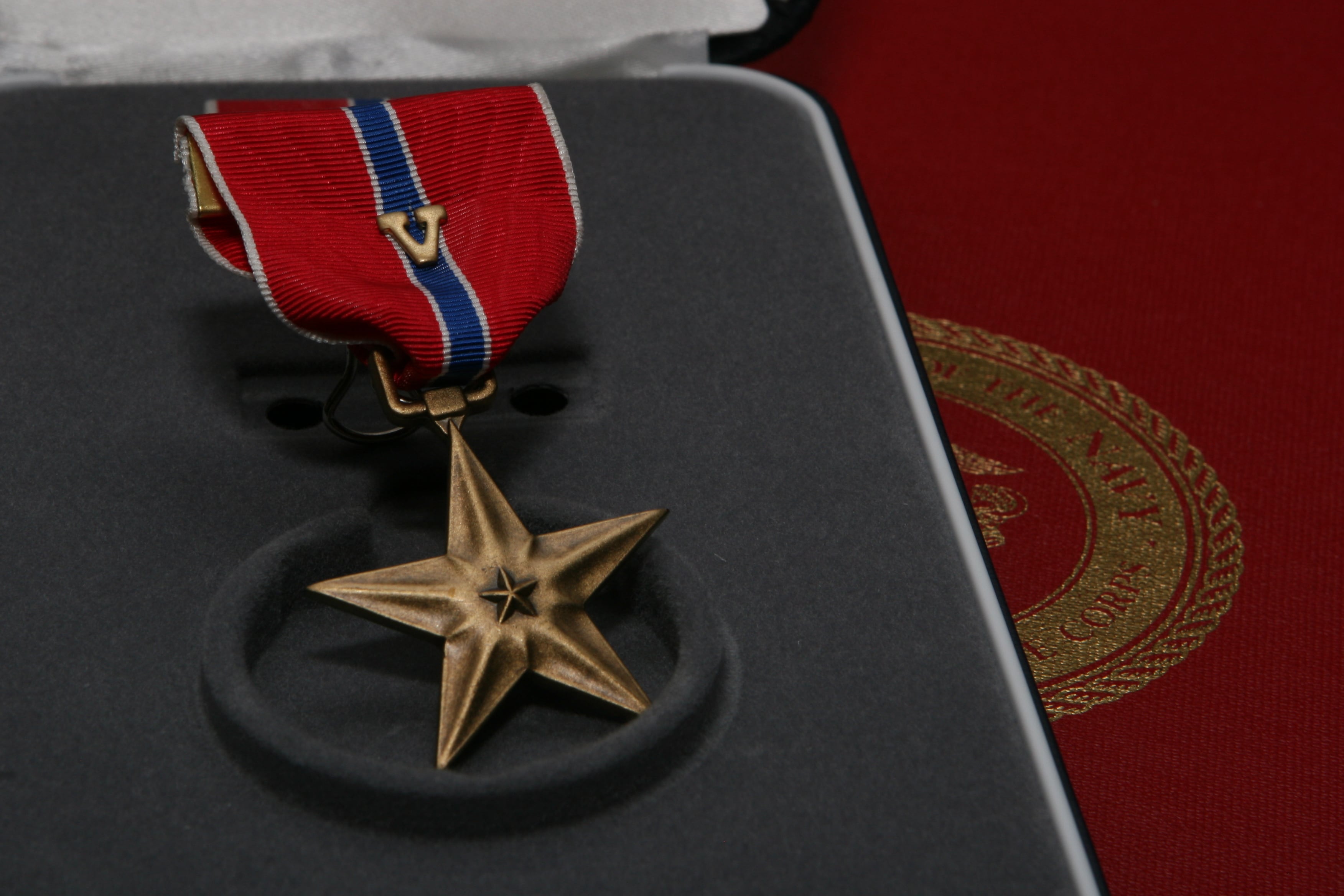When a suicide bomber wormed their way into the desperate crowd outside the Kabul airport in August 2021, killing 13 American troops and wounding dozens of Afghan civilians, two airmen knew they had no time to lose to keep the death toll from growing.
Now their lifesaving work has earned them Bronze Stars.
Capt. Carlos Mendoza and Staff Sgt. Morgan Reed, who were assigned to the 379th Expeditionary Operations Group during the U.S. military’s evacuation from Afghanistan after two decades of war there, received the medals Nov. 9 at the Airlift/Tanker Association’s annual conference, the Air Force said Friday.
RELATED

The Bronze Star is one of the top U.S. military honors for troops that have accomplished heroic or meritorious feats, outside of flight operations, when fighting an armed enemy.
Mendoza and Reed were members of an aeromedical evacuation team that deployed to Kabul from Al Udeid Air Base in Qatar to assist with Operation Allies Refuge — the historic evacuation of more than 124,000 non-combatants seeking to escape Taliban rule as the U.S. left Afghanistan.
They became part of the select few who cared for patients injured and killed in the attack outside Hamid Karzai International Airport, on the front lines of the withdrawal’s most catastrophic 48 hours for American troops.
The Aug. 26, 2021, suicide bombing by an Islamic State militant killed 13 U.S. troops and wounded at least 160 nearby civilians.

Saving as many Americans and Afghans as possible required all hands on deck. Reed, a communications specialist with limited medical training, rushed to the emergency room to begin identifying and triaging patients.
The men stemmed bleeding, inserted IVs and opened new airways so patients could breathe as chaos unfolded around them.
Reed began moving bodies into a makeshift morgue tent, and came across two mortuary affairs soldiers who were overwhelmed by the dead troops, whose remains they were tasked to handle, according to his citation. He helped search for his fallen comrades’ identification cards and dog tags, and wrapped them in body bags.
“Over the next several hours, without rest, he made several trips transporting patients, medical supplies, equipment and blood back and forth to the emergency room,” Reed’s citation said. “His rapid assessments and remarkable selflessness undoubtedly enhanced his team’s success and saved lives.”
Mendoza, an aeromedical evacuation liaison officer, and an Air Force doctor scrambled to figure out why a wounded Marine couldn’t breathe. After cracking open the man’s chest, Mendoza noticed his heartbeat begin to die away.
“I was holding up his ribcage … trying to expose as much as I could so the doctor could see it,” Mendoza told Air Force Times in an interview last year. “When I was holding his heart, I could see [it] slowly stop beating.”
He massaged the Marine’s heart with his bare hand, reviving blood flow to the man’s brain and other vital organs, his citation said. The Marine ultimately lived.
Together, Mendoza and Reed saved 38 patients in critical condition and 40 Afghan family members, the Air Force said.
The pair joins a growing number of troops who have received Bronze Stars in the aftermath of the historic evacuation. Recipients include airmen who led search-and-rescue operations from Bagram Air Base as the Taliban overtook the country, coordinated outbound flights from the Kabul airfield, and multiple others across the armed forces.
The Air Force has awarded at least 14 Bronze Stars related to the withdrawal so far.

Air Mobility Command also confirmed Wednesday that it will bestow the Distinguished Flying Cross upon the maintainers and security forces whose pilot and loadmaster teammates have already been recognized for contributions to Allies Refuge.
For instance, the Air Force Reserve in April 2022 gave the DFC to four members of a C-17 Globemaster III airlifter crew, but not the team’s flying crew chief. That irked airmen who viewed their unrecognized wingmen as equally deserving of military honors.
“We didn’t fly unless our crew chiefs had their shit together,” Reddit user janxus posted that month. “And they always did.”
Rachel Cohen is the editor of Air Force Times. She joined the publication as its senior reporter in March 2021. Her work has appeared in the Washington Post, the Frederick News-Post (Md.), Air and Space Forces Magazine, Inside Defense, Inside Health Policy and elsewhere.





